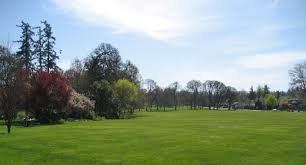pasture
英 [ˈpɑːs.tʃər]
美 [ˈpæs.tʃɚ]
- n. 草地;牧场;牧草
- vt. 放牧;吃草
- n. (Pasture)人名;(英)帕斯彻;(法)帕斯蒂尔
使用频率:

记忆方法
将“pasture”想象成一片“past”时间的草原,即过去时的草地。通过这种方法,你将单词与过去的场景联系起来,有助于记忆。
以上内容由AI生成, 仅供参考和借鉴
中文词源
pasture 牧场,牧草地
来自拉丁语pascere,放牧,喂养,来自PIE*pa,喂食,喂养,词源同food,company.-ure,名词后缀。即放牧的地方。
英语词源
- pasture (n.)
- c. 1300, "grass eaten by cattle," from Old French pasture "fodder, grass eaten by cattle" (12c., Modern French pâture), from Late Latin pastura "a feeding, grazing," from Latin pastus, past participle of pascere "to feed, graze" (see pastor). Meaning "land covered with vegetation suitable for grazing" is from early 14c. To be out to pasture "retired" is from 1945, from what was done (ideally) to horses after the active working life.
- pasture (v.)
- late 14c., of animals, "to graze;" early 15c., of humans, "to lead to pasture, to feed by putting in a pasture," from Old French pasturer (12c., Modern French pâturer, from pasture (see pasture (n.)). Related: Pastured; pasturing.
权威例句
- 1. Every summer the shepherds drive the sheep up to pasture.
- 每年夏天牧羊人都将羊群赶到牧场去。
- 2. I'm retiring next month. They're putting me out to pasture.
- 我下个月退休。他们要我养老去了。
- 3. It's about time this old sewing machine was put out to pasture.
- 这部旧缝纫机大概到了被淘汰的时候了.
- 4. This is the place where they used to pasture.
- 这就是他们过去经常放牧的地方.
- 5. The boy got up very early every morning to pasture cattle.
- 这男孩每天起得很早去放牛.
